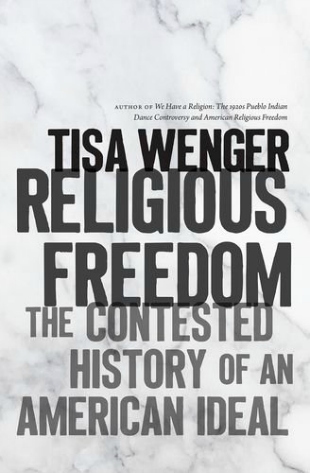A surfeit of scholarly and timely books try to answer the question, "What does all this commotion about religious freedom really mean?" Tisa Wenger, associate professor of American religious history at Yale University, plunges us into the maelstrom of religion, race, and empire during the period between 1898 to World War II. Wenger shows how various racial and religious minorities struggled to improve their standings in the rankings of the American empire where Anglo-Protestant supremacy reigned supreme.
Among those vying to be viewed as equals to white Americans were Native Americans, African-Americans, Jewish Americans, African-Americans, and Filipinos residing in the Philippines after it became a U.S. territory. Perhaps the most outrageous disrespect and humiliation handed down by settler-colonial Christians was meted out to Native Americans. The cumulative effect of white supremacy, empire, and racial prejudice has tainted the ideal of religious freedom. But as Tisa Wenger puts it in an interview in the Yale Herald:
"I think religious freedom is the ideal worth preserving, and this still has value for us, but that it needs to be balanced with other values and ideals."
